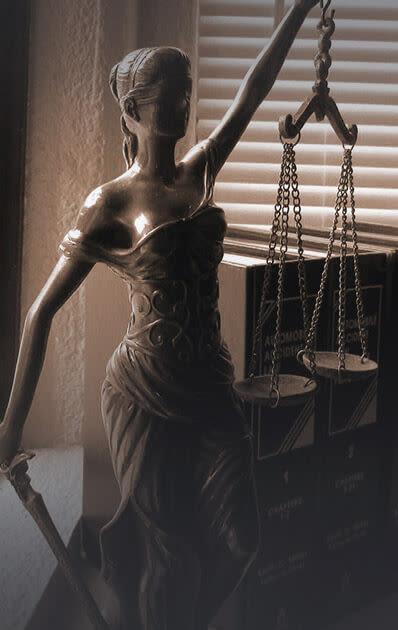At Your Side.
Understanding Liability in Motorcycle Accidents: Who’s at Fault?
Motorcycle Accident Liability
Who Is At Fault?

Motorcycle accidents can be devastating, often resulting in severe injuries or even fatalities.
Determining who is at fault in these accidents is a crucial step in pursuing a personal injury claim.
This page aims to provide a more in-depth understanding of liability in motorcycle accidents, including the factors that contribute to determining fault, the role of negligence, and the potential impact on compensation.
I. Contributing Factors in Determining Fault in Motorcycle Accidents
To establish liability in a motorcycle accident, various factors are considered, such as:
- Traffic laws: Violating traffic laws, such as speeding, running a red light, or failing to yield, can lead to a determination of fault.
- Road conditions: Poorly maintained roads, debris, or uneven surfaces can contribute to accidents. In such cases, a government entity or construction company may share liability.
- Weather conditions: Bad weather, such as heavy rain or fog, can impact visibility and road traction, potentially contributing to accidents.
- Mechanical failure: Faulty parts or inadequate maintenance can cause motorcycle accidents, possibly implicating manufacturers or mechanics in liability.
- Alcohol or drug use: Impaired driving due to alcohol or drugs increases the likelihood of accidents and can lead to a determination of fault.
II. The Role of Negligence in Motorcycle Accident Liability
Negligence plays a significant role in determining liability in motorcycle accidents. It occurs when a party fails to exercise the required level of care and caution, resulting in an accident.
To establish negligence, four elements must be proven:
- Duty of care: All road users have a legal responsibility to act responsibly and avoid causing harm to others.
- Breach of duty: Demonstrating that the defendant’s actions, or lack thereof, breached their duty of care.
- Causation: Proving a direct link between the defendant’s breach of duty and the accident.
- Damages: Establishing that the plaintiff suffered injuries or losses as a direct result of the accident.
III. Comparative and Contributory Negligence
In some cases, more than one party may be found to be at fault for a motorcycle accident.
The concepts of comparative and contributory negligence help determine each party’s level of responsibility and the impact on compensation:
- Comparative negligence: In states that follow comparative negligence, each party’s degree of fault is determined, and compensation is awarded accordingly. If the plaintiff is found partially at fault, their compensation will be reduced by their percentage of fault.
- Contributory negligence: In states that follow contributory negligence, any degree of fault on the part of the plaintiff can bar them from receiving compensation.
IV. The Impact of Liability on Compensation
Establishing liability is critical for obtaining compensation in a personal injury claim.
Compensation typically covers economic damages, such as medical expenses, lost wages, and property damage, as well as non-economic damages, such as pain and suffering, emotional distress, and loss of enjoyment of life.
However, it is essential to note that the degree of fault, as well as state-specific negligence laws, can significantly impact the compensation received.
Conclusion
Understanding liability in motorcycle accidents is a crucial aspect of pursuing a personal injury claim. Determining fault involves considering various factors, including traffic laws, road conditions, and negligence.
Comparative and contributory negligence rules may affect compensation depending on each party’s level of fault and the state’s legal framework.
To ensure the best possible outcome in a motorcycle accident personal injury case, it is highly recommended to consult with an experienced attorney who can navigate the complexities of establishing liability and pursuing just compensation.
At Wood, Atter & Wolf, we have the experience and the resources – including access to accident reconstruction experts, medical specialists, and crash investigators – to obtain the compensation you need and deserve for your injury or the death of your loved one.
CallWood, Atter & Wolf at (904) 355-8888 or click for a free consultation with one of our experienced personal injury attorneys who can answer your questions and help you with all your legal needs.
Motorcycle Accident Lawyer in North Florida
At Wood, Atter and Wolf, we know that a bicycle accident is a scary and stressful time. Find out how a motorcycle accident attorney can help you.
So, if you or a loved one has been injured due to someone else’s negligence, you need an experienced and aggressive motorcycle accident lawyer.
If you would like a free consultation with David Wolf, call today at (904) 355-8888. You can also schedule a consultation online.

